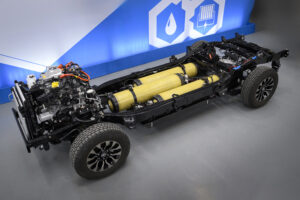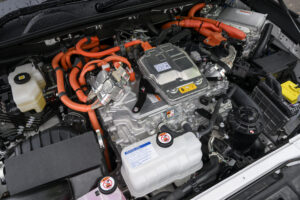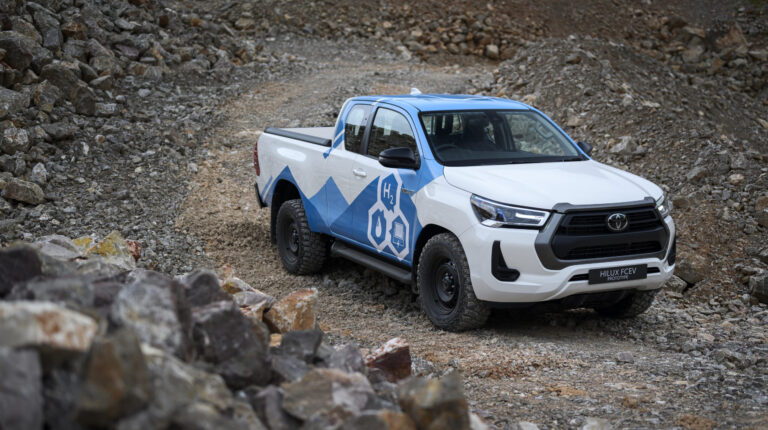Toyota‘s hydrogen fuel cell Hilux project has entered the demonstration phase with 10 prototypes, built by Toyota Motor Manufacturing UK (TMUK) and using Toyota’s fuel cell electric technology, undergoing evaluation.
Five vehicles are undergoing rigorous field testing, while the remaining five are used for customer and media demonstrations, including at the upcoming Paris 2024 Olympic and Paralympic Games.
This initiative is part of Toyota’s broader European strategy to promote hydrogen fuel cell solutions for achieving carbon neutrality. The hydrogen fuel cell Hilux project began with a feasibility study in early 2022, supported by the UK government through the Advanced Propulsion Centre. The prototypes were constructed at TMUK following Toyota Production System principles.

The hydrogen fuel cell Hilux is based on the well-known Toyota Hilux, and retains its rugged design while integrating advanced fuel cell technology from the Toyota Mirai that produces no tailpipe emissions.
The vehicle features a driving range of up to 600km, and stores hydrogen in three high-pressure tanks. Power is delivered by an e-motor on the rear axle, producing 134W of power and 300Nm of torque.

Toyota anticipates that Europe will become a major market for hydrogen fuel cells by 2030, driving the company’s commitment to developing next-generation fuel cell technology. This technology aims to offer longer lifecycles, increased driving ranges and reduced costs.
Toyota’s Hydrogen Factory Europe, announced in December 2023, will support this goal by coordinating the development, production and commercialization of hydrogen technology.
In addition to the Hilux project, Toyota is involved in various hydrogen partnerships across Europe, including trials with hydrogen-powered trucks, buses and marine systems.


